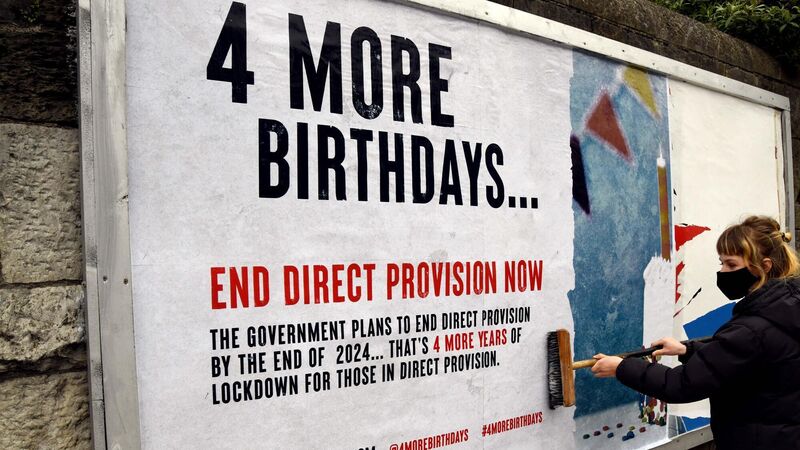Joyce Fegan: Does the State only care about certain children?

Sofya Abashko, a student from Cork Educate Together Secondary School at the installation of a billboard at Lower Glanmire Road, Cork, saying that four more years of Direct Provision is too many. Picture: Denis Minihane
If we found out that a school or sports club or swimming pool had adults working there who had not been vetted to work with children, despite assurances to the contrary, I'm assuming there would be a bit of national uproar.
And if we found out that the children's parents were afraid to make complaints in the school or sports club or swimming pool for fear of the consequences, I'm assuming our initial uproar might double in size.















